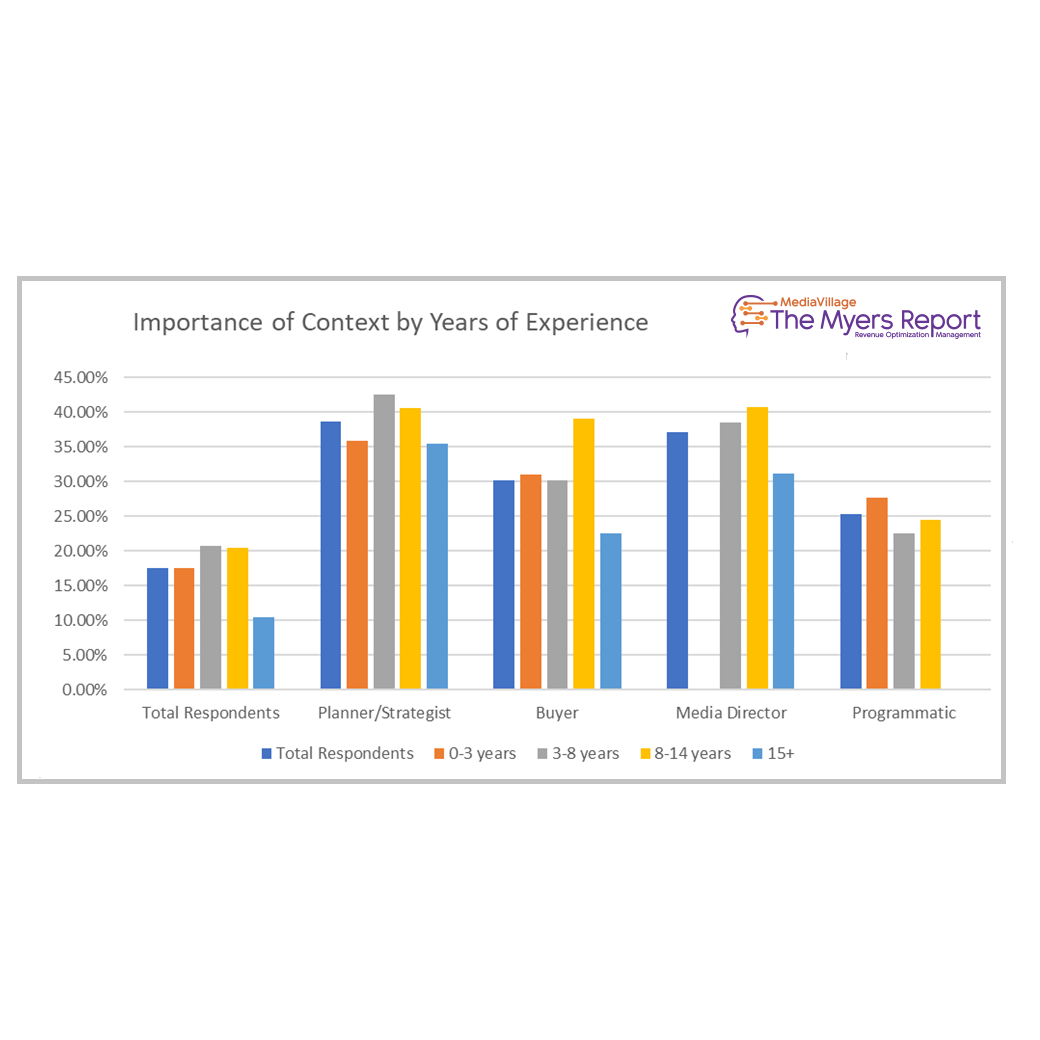Unlocking Advertising's Context Conundrum

In the ever-evolving landscape of advertising, the question arises: Does context still hold its importance in the age of audience targeting? Recent data from The Myers Report highlights that, while context does indeed play a crucial role in media planning and buying decisions, its perceived value varies significantly among different segments of decision-makers within the media agency ecosystem, with seniority being a defining factor.
The advertising industry has long recognized the significance of contextually relevant editorial content, particularly for products and services with low impulse but high involvement. However, as advertising dollars increasingly shift towards programmatic media, and audience buying becomes more sophisticated, there seems to be a prevailing notion in the marketplace that diminishes the role of context. Paradoxically, in some areas, context is experiencing a resurgence, driven by concerns over cookie deprecation.
A recent Team Readiness Survey conducted by The Myers Report, involving over 4,200 ad-supported industry professionals, including agency buyers and marketers, sheds light on what factors are considered most important when making media decisions. These professionals were asked to select their top three factors in media buying decisions from twelve choices, and the results were illuminating. While reach and brand safety were unsurprisingly at the top of the list, what caught our attention was the prominence of "Contextual Relevance of Content Environment" as the third most utilized filter for media selection, even surpassing programmatic offerings and the use of first-party data. A significant 36% of respondents considered context a critical part of their media plan selection process (tied with "Innovation and Creativity", in contrast to 30% for first-party data and a mere 21% for programmatic buying.
Delving deeper into the data reveals a stark disparity among different cohorts within the industry. Programmatic buyers emerge as outliers, with only 25% assigning value to contextual advertising, emphasizing efficiency and short-term conversion metrics. In contrast, strategists and planners highly value context, with 38.6% considering it critical to their media selection, while 30.2% of non-programmatic media investors share a similar perspective. This significant gap prompts questions about the mindset of programmatic buyers and their ability to recognize the value of contextually relevant impressions.
Experience and responsibility levels within the industry also play a role in shaping perceptions. Early-career media strategists, with 1-3 years of experience, emphasize the importance of contextual relevance, with 35.9% ranking it among their top three factors in media recommendations, mirroring the sentiment of 30.2% of buyers. However, as one progresses in their career, particularly beyond the 15-year mark, there is a noticeable decline in the emphasis placed on context. This phenomenon could be attributed to senior professionals being entrusted with higher-level responsibilities, often involving shifts in programmatic priorities and cross-agency media partnerships, which may steer them away from contextually relevant content.
Despite the variations in perception and value, a common thread emerges from studies and analyses of numerous media campaigns spanning several decades: the best performance from digital ads consistently arises from contextually relevant placements. It is both intuitive and factually accurate that consumers engaged in specific topics are more receptive to complementary messages and are more likely to click on ads that align with their current interests.
As the advertising industry continues to spiral into an audience/impressions-centric deterministic model and grapples with challenges like cookie deprecation and increased privacy legislation, The Myers Report data makes a compelling case to revisit a context-and-content focused approach. Based on the disparities noted in the recent study, including extensive insights uncovering differing priorities at different agencies, it's important for clients to go beyond procurement-led purchasing guidelines and set clear standards and expectations for how their media campaigns are executed. Similarly, it can be argued that media agency leadership should integrate their media teams across silos to engage programmatic teams with colleagues from different perspectives to bridge the gap and harness the potential of context in advertising.
For further insights and a more comprehensive understanding of these disparities, we encourage readers to explore The Myers Report Team Readiness Survey, which provides valuable data from over 4,200 advertising professionals, shedding light on the evolving dynamics of context in advertising decision-making. Contact Jeff Minsky at jeff@mediavillage.org for more information.


